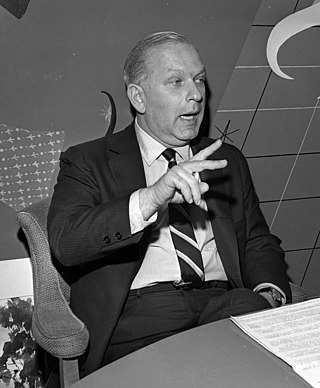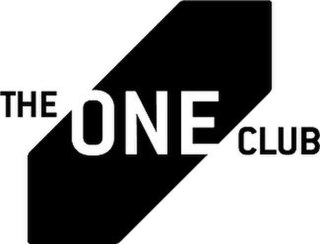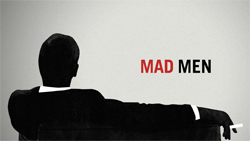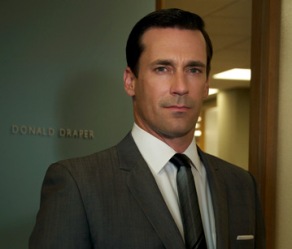Related Research Articles

Meow Mix is a product of The J.M. Smucker Company ; a variety of dry and wet cat food known for its advertising jingle. Meow Mix was introduced in 1974 and sells many flavors, including "Original Choice" and "Seafood Medley". It also is known for selling "Alley Cat" dry cat food. Their current slogan is "it's the only brand cats ask for by name".

Joe Isuzu was a fictional spokesman who starred in a series of 1980s television advertisements for Isuzu cars and trucks. Created by the ad agency Della Femina, Travisano, and Partners, and directed by Hollywood director Graham Baker, the segments aired on American television in 1986–90, reaching their zenith in 1987 after the character was featured during Super Bowl XXI. Played by actor David Leisure, Joe Isuzu was a pathological liar who made outrageous and overinflated claims about Isuzu's cars, with one commercial even casting him as the Boy Who Cried Wolf. Joe Isuzu's satire of the advertising and automotive sales business met with some resistance within those industries among those who felt the character reflected poorly on them.
BBDO is a worldwide advertising agency network, with its headquarters in New York City. The agency originated in 1891 with the George Batten Company, and in 1928, through a merger with Barton, Durstine & Osborn (BDO), the agency became Batten, Barton, Durstine & Osborn. With more than 15,000 employees at 289 offices in 81 countries, it is the largest of three global networks of agencies in the portfolio of Omnicom Group.

William Bernbach was an American advertising creative director. He was one of the three founders in 1949 of the international advertising agency Doyle Dane Bernbach (DDB). He directed many of the firm's breakthrough ad campaigns and had a lasting impact on the creative team structures now commonly used by ad agencies.
Dentsu is a multinational media and digital marketing communications company headquartered in London, United Kingdom, and a wholly owned subsidiary of the Japanese advertising and public relations firm Dentsu. Its principal services are communications strategy through digital creative execution, media planning and buying, sports marketing and content creation, brand tracking and marketing analytics. It is organised into ten main divisions: Carat, Dentsu, Dentsu media, mcgarrybowen, Merkle, Fountainhead MKTG, Posterscope, Isobar, Soap Creative, iProspect and Vizeum. Dentsu Aegis Network manages all the Dentsu inc. owned businesses outside the Japan market, which includes the former Aegis Group business that it acquired in 2013. It also includes 360i, Amplifi, Amnet, BJL, Grip Limited, The StoryLab, Data2Decisions, Mitchell Communications, Cardinal Path and psLIVE. It has 66,000 people across 143 countries.
Henry S. Levy and Sons, popularly known as Levy's, was a bakery based in Brooklyn, New York, most famous for its Jewish rye bread. It is best known for its advertising campaign "You Don't Have to Be Jewish to Love Levy's", which columnist Walter Winchell referred to as "the commercial [sic] with a sensayuma".

Robert Nicholas Giraldi is an American filmmaker, music video and commercial director, educator, and restaurateur. He is known for directing the film Dinner Rush (2000) and the music video for Michael Jackson's "Beat It" (1983). Giraldi has been inducted into the Art Director's Hall of Fame, one of the few film directors to be honored; and, in 2014, was the first director ever to be inducted to the Advertising Hall of Fame. His work has garnered several London International Awards, Cannes Advertising Awards, NY International Awards, Addy Awards, Chicago Film Festival Awards, and dozens of Clio Awards. He has been named one of the 101 Stars Behind 100 Years of Advertising.
David Franklin Kennedy was an American advertising executive who co-founded Wieden+Kennedy (W+K). Some of his most popular campaigns included the "Just Do It", "Bo Knows", and the "Mars and Mike" campaigns for Nike, Inc. He and his creative partner Dan Wieden were listed as number 22 on the Advertising Age 100 ad people of the 20th century.

The One Club is an American non-profit organization that recognizes and promotes excellence in advertising. Founded in New York City as The One Club for Art & Copy, The One Club produces four annual award competitions: One Show, One Show Design, One Show Interactive and One Show Entertainment. The One Show Festival is held in accord with Creative Week NYC. According to The Fundamentals of Creative Advertising., "The One Club produces advertising's most prestigious awards program." The One Show coveted pencil award statues are made by New York firm, Society Awards.
Shirley Polykoff was a pioneering woman in American advertising, rising from an entry-level copywriter to a senior executive. Her "Does She... Or Doesn't She?" branding slogan accompanied by "Hair Color So Natural Only Her Hairdresser Knows For Sure" tagline developed in 1956 for Clairol dramatically increased sales, changed cultural norms, and earned her a place in the Advertising Hall of Fame.

Mad Men is an American period drama television series created by Matthew Weiner and produced by Lionsgate Television. It ran on cable network AMC from July 19, 2007, to May 17, 2015, with seven seasons and 92 episodes. It is set during the period of March 1960 to November 1970.

Donald Francis "Don" Draper, born Richard "Dick" Whitman, is a fictional character and the protagonist of the AMC television series Mad Men (2007–2015), portrayed by Jon Hamm. At the beginning of the series, Draper is the charismatic yet enigmatic creative director at the fictional Manhattan advertising firm Sterling Cooper. In spite of his success, he is plagued by several personal problems, including the issues of identity and social alienation, in part due to his difficult past. His personal and professional developments in the show are frequently situated against the larger social, political, and economic events of the 1960s. In 2024, Hamm reprised his role as Draper in a cameo role in the comedy film Unfrosted.
WCRS may refer to:
Graham Fink is a multimedia artist.
Julian Norman Koenig was an American copywriter. He was inducted into The One Club Creative Hall of Fame in 1966.
Judy Licht is an American television and print journalist whose work often focuses on the entertainment and fashion worlds. Born to Bernard and Eleanor Licht of New York, Licht graduated from Connecticut College and received her master's degree in Broadcast Journalism from Syracuse University.
McCann, formerly McCann Erickson, is an American global advertising agency network, with offices in 120 countries. McCann is part of McCann Worldgroup, along with several other agencies, including direct digital marketing agency MRM//McCann, experiential marketing agency Momentum Worldwide, healthcare marketing group McCann Health, and public-relations and strategic-communications agency Weber Shandwick.

POM Wonderful Presents: The Greatest Movie Ever Sold is a 2011 documentary film about product placement, marketing and advertising directed by Morgan Spurlock. The premise behind the production is that the documentary itself would be entirely paid for by sponsors, thus being a form of metacinema. The film's slogan is "He's not selling out, he's buying in."
Robert M. Oksner was an advertising professional. He worked for some of New York's top advertising agencies for three decades. He wrote such ads as "He's well on his way to being a brilliant surgeon. Now's your chance to stop him. Just turn this page" for the United Negro College Fund and "Full Color Sound" for Sony Tape, with art by Milton Glaser.
Michael Thomas Della Femina is the founder of hybrid marketing and production studio StoreFront, as well as an actor, producer, and restaurateur.
References
- ↑ Tamny, John (April 30, 2011). "Jerry Della Femina, the "Mad Men" Ad Man, Has Shrugged". Forbes . Retrieved June 12, 2011.
- ↑ Della Femina, Jerry (July 17, 2010). "'We drank, we smoked, we slept around' - When the Mad Men writers need advice they call the legendary Jerry Della Femina. As his seminal memoir is republished, he recalls the years of shocking excess. Mad Men: the reality was far worse". The Times .
- ↑ Dean, Will (July 17, 2010). "The last of the Madison Avenue mavericks of Mad Men". The Guardian . Retrieved June 13, 2011.
- ↑ Bierut, Michael. "Jerry Della Femina, Mad Men, and the Cult of Advertising Personality". The Design Observer Group. Archived from the original on July 16, 2012. Retrieved June 12, 2011.
- 1 2 3 4 United Press International (July 13, 1985). "The 'Madman' of Madison Avenue Jerry Della Femina says he just wants to have fun". San Jose Mercury News .
- 1 2 3 4 Moore, Martha T. (May 17, 1994). "Della Femina invites more fame, fortune". USA Today .
- 1 2 3 Anderson, Susan Heller; Carroll, Maurice (July 24, 1984). "Magic and the Mets". The New York Times .
- 1 2 "Jerry Della Femina marries Judy Licht". New York Times. February 16, 1983. Retrieved June 12, 2011.
- ↑ Della Femina, Jerry, (1978). An Italian Grows in Brooklyn (1st ed.). Little, Brown. ISBN 0316179914.
- ↑ Siegel, RitaSue. "You can't influence people if you live in a vacuum". Communication Arts. Archived from the original on May 23, 2011. Retrieved June 10, 2011.
- ↑ "An interview with Mr. Jerry Della Femina". 1969. Retrieved June 12, 2011.
- ↑ Moore, Martha T. (May 17, 1994). "Della Femina invites more fame, fortune". USA Today .
- ↑ Dougherty, Philip H. (March 11, 1985). "Advertising Agency's Travisano Moving On". New York Times .
- ↑ Gross, Michael (April 6, 1998). "Jerry Della Femina: (M)Adman". New York .
- ↑ Della Femina, Jerry (1971). From Those Wonderful Folks Who Gave You Pearl Harbor . Pocket Books. ISBN 0-671-78052-2.
- ↑ Femina, Jerry Della (April 20, 2011). "Jerry going on strike". Archived from the original on September 28, 2011. Retrieved June 12, 2011.
- ↑ "Independent Newspaper Has New Owner". 27 East. 2017-04-25. Retrieved 2023-02-06.
- ↑ Jerry, Della Femina (1999-03-29). "Jerry della Femina". adage.com. Ad Age.